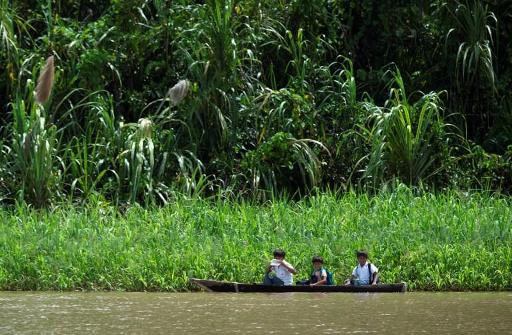Deforestation in the tropics causes greater CO2 emissions than previously thought due to centuries-old carbon also released by the soil, according to an international study, published on Monday, in which the University of Ghent participated.
The researchers measured the effect of deforestation in the east of Congo, highlighting its impact on climate change.
When a forest is cut down, it can no longer extract carbon dioxide from the air. At the same time, carbon dating back, on average, 1,500 years ago is then freed by the soil.
The study was conducted in 19 sites in the east of Congo, where demographic growth has hastened deforestation, as trees are cut down to make way for agricultural land. The scientists took soil and water samples there and found that the soil released large amounts of carbon in places where many trees had been cut.
“Deforestation has a doubly negative effect on climate change,” researcher Marijn Bauters explains. “Firstly, because the tree that converts CO2 into oxygen disappears. Secondly, because the ground releases carbon when land use changes from forest to agriculture.”
Deforestation makes the ground unstable so carbon that had been stably stocked there for many years ends up in rivers. Germs present in the water convert the carbon into CO2, which enters the air, increasing the greenhouse effect.
The researchers advocate pursuing conventional agriculture, but also conserving forests. “Buffer zones and terraces can be installed in areas where the forest needs to make way for farmland,” Mr. Bauters recommended.
The Brussels Times

